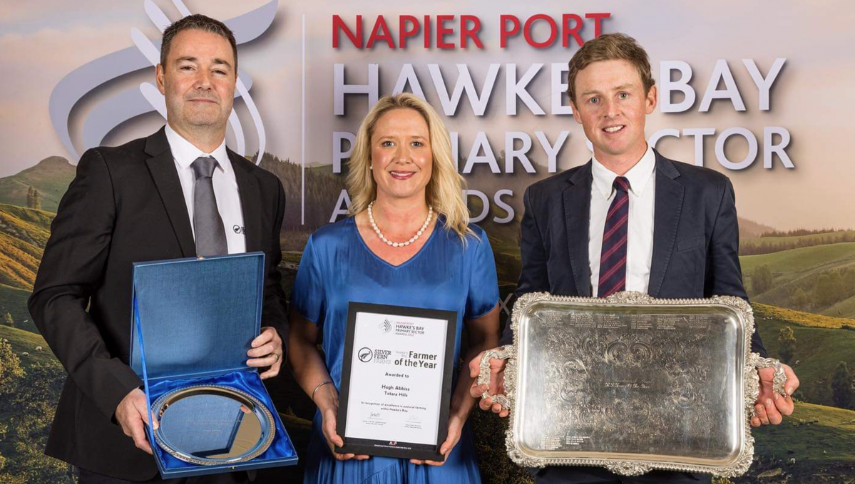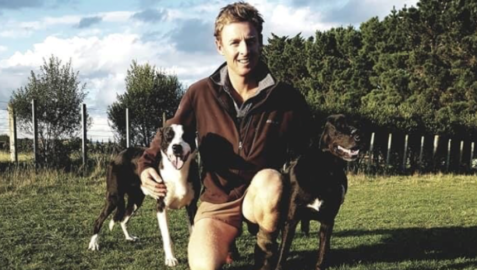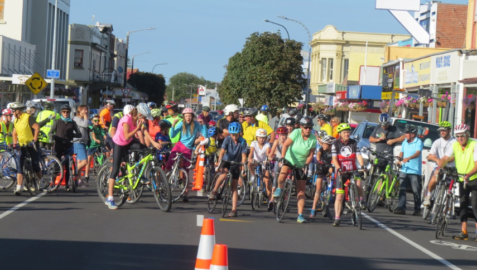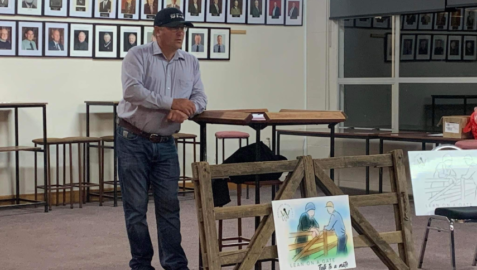
Prioritising People
Module Overview
Award-winning Hawke’s Bay farmer Hugh Abbiss says a focus on people has driven the farm’s growth and success during some challenging times in recent years.
How did you get into farming?
Farming’s all I’ve ever done and all I’ve ever wanted to do. I grew up on the family farm in Feilding in the Manawatu. It was a 1,100 ha sheep and cropping farm. I went to uni at Lincoln, worked in the South Island high country for a while then moved to the Hawkes Bay and worked on lamb finishing property for four years before I got this job.
Where are you farming now?
I’m a farm manager in Totara Hills Station, Tikokino. We’re finishing 15,000 lambs and we’ve also got 2,000 ewes, 500 cattle and 150 hectares of cash crop. It’s a large, complex business so I work with a team of two and half full-time equivalents.
What do you enjoy about the job?
It’s not really a job to me. It’s more of a passion. It’s a 24/7 lifestyle and you’re often in over your head, but there’s lots to enjoy about it too.
It’s been very dry in recent years where you’re farming. That must have been challenging.
Yes, we’ve had a couple of rough years and now we’re going through the complete opposite – it won’t stop raining. That kind of sums up where things are at. It’s a very variable climate.
It takes a certain mindset to cope with that. The judges of the award you won noted your resilience.
I guess you’ve just got to focus on the positives because there are so many things out of your control in farming, like the weather. If you don’t do that, things can eat away at you and get you down. But when the grass is growing and the stock are doing well it’s a pretty enjoyable place to be. My philosophy is, for every day when the grass isn’t growing, there’s always a day when it is.
What other pressures do you face?
The main one is the pressure to perform and be profitable, which every farmer faces. If I didn’t generate a profit by doing what I do, I wouldn’t have a job. That’s a pretty significant weight. But that’s just the reality of farming – there’s always lots of balls in the air. It’s about managing them and yourself.
What’s your approach?
The biggest thing is managing the expectations I place on myself. There are times in farming when things don’t quite go right. For example, maybe your lambs haven’t grown as much as you’d like. But even during those times, there’ll always be something that you are doing well. It’s about celebrating that and giving yourself a pat yourself on the back.
Some people might find maintaining such a positive outlook difficult.
Yes, they might, but if you’re just constantly chasing perfection in farming, you’ll always be down on yourself and you’ll drive yourself into the ground. I can say that because I am a bit of a perfectionist myself [laughs]. I’m often my own harshest critic, but I’ve learnt to manage that.
So how would you describe your mindset?
I think my philosophy nowadays is ‘shoot for the stars and if you land somewhere pretty close that’s still not a bad spot’.
What about workload? You sound very busy. How do you manage that?
We’ve worked hard at getting a good balance here. We don’t make ourselves busy when we don’t have to be. We’re either going flat out to get things done or we’re not. If things need doing we’ll put in a big shift, but we also realise not every task is urgent. We can have the odd day where we do a bit less and only do 7 hours and do other things or do different jobs we enjoy on farm. As a manager if we are having a quiet day, I make sure I don’t put false pressure on people. It’s ok to have a longer smoko and catch up as a team for a natter. That stuff’s important too.
What are your go-tos personally to manage pressure?
Socialising is a big one for me, especially if I’m having a rough week. It’s a great pressure release because you can share your issues. I’ve got a close group of friends who are all farmers like me. Every Friday night we’ll catch up and see how everyone’s week’s gone and compare notes. If you think you’re having a rough week, chances are someone else is having one too. That gives you perspective.
What about longer breaks?
[laughs] I must admit farming’s a bit of an addiction for me. Wherever I go I’m either talking about it or visiting something to do with it. But my partner and I do try and go away for a week a couple of times during the year to get fully off farm. I’m very lucky I’ve got staff I can delegate tasks to. If we’ve got the farm covered as a team I might pop away occasionally mid-week and do something else.
There’s a lot of discussion about wellbeing at the moment. What’s your take on it?
I think younger farmers like me, in their 20s and 30s, have these ideas front of mind anyway. My farmer friends are pretty open and honest about their workload and whether it’s sustainable or not. We have those discussions. You can have big weeks and work hard, but you’ve got to know when you’re pushing the limit. As an industry we’ve got to work out how to manage that better.
What needs to happen?
Well, I think the workload is only going to increase, especially with staff shortages and the level of complexity coming into the industry. The type of farming systems that we’re running are already complicated and if you throw everything else coming at us at the moment on top of that, it can feel overwhelming. So it’s not just about physical workload, it’s also about the mental load. I think people will need help navigating these pressures and changes because it could be a bumpy few years.
What do you suggest?
As an industry, I guess we’ve got to develop systems that are still going to be labour-efficient, but also look after people. For me as a farm manager, looking after my team is my number one priority. Without them, I’m buggered. The reality of running a scaled agribusiness is that it’s a team effort. You can’t take people for granted.
Farmstrong is a nationwide, rural wellbeing programme that helps farmers and growers live well to farm well. To find out what else could work for you and ‘lock it in’, visit farmstrong.co.nz



